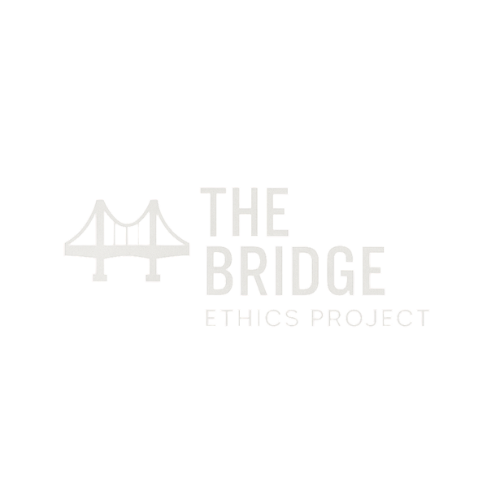
Real Tools. Real Systems. Real Accountability.
Ethics isn’t just a principle, it’s a system you build. These tools help operationalize your governance goals,
giving structure to transparency, voice to feedback, and clarity to oversight.
Download. Apply. Evolve them.
Tools & Systems Library
Explore the real-world resources that bring our doctrine to life.
AI Startup Checklist
Outlines essential steps for launching AI products ethically from Day 0. Covers stakeholder alignment, transparency ops, risk review, and embedded safeguards.
Includes:
- Pre-launch risk checkpoints
- Team alignment prompts on ethics + goals
- Early stage transparency and audit flags
Ideal for: Founders, product leads, and AI teams laying the groundwork for responsible innovation.
Dual Oversight Role Guide
Clarify authority. Build accountability. This guide outlines the core roles in a Dual Oversight system, balancing human judgment with algorithmic autonomy. It defines responsibilities, escalation paths, and ethical boundaries across decision layers.
Includes:
- Role Cards for Human + AI agents
- Scenario based division of responsibility
- Oversight Ladder for high-risk decisions
Ideal for: Compliance teams, ethics boards, and AI product leads building shared accountability across tech + people.
Oversight Roles Assignment Guide
Clarifies responsibilities between human reviewers and AI systems within your ethical governance framework. Includes role cards and accountability ladders.
Includes:
- Defined roles across Human AI decision layers
- Sample assignments by risk level and domain
- Escalation logic for shared or contested decisions
Ideal for: Ethics officers, compliance leads, and teams formalizing shared accountability in AI operations.
Ethics Deployment Map
Visualizes how ethical oversight integrates into real-world AI workflows, from design to deployment. Helps teams embed governance touchpoints without slowing innovation.
Includes:
- Lifecycle aligned ethical checkpoints
- Role-based intervention zones
- Deployment phase risk tiers
Ideal for: Product managers, AI ops teams, and governance leads mapping ethical oversight into active pipelines.
Public Changelog Template
Helps AI teams maintain a transparent, versioned log of ethical decisions, updates, and system changes. Designed to build trust and document evolution over time.
Includes:
- Editable Notion + PDF templates
- Fields for rationale, reviewer, and impact
- Optional public facing and internal views
Ideal for: Ethics teams, founders, and public orgs needing transparency in AI system development.
Amendment Proposal Form
Provides a structured process for proposing updates to your ethical framework or tools. Encourages transparent iteration, community input, and documented rationale.
Includes:
- Editable proposal submission template
- Fields for clause reference, justification, and urgency
- Optional review workflow integration
Ideal for: Governance boards, internal reviewers, and external stakeholders contributing to doctrine evolution.
Oversight Meeting Agenda Template
Provides a ready to use structure for recurring oversight meetings focused on AI system governance, ethical updates, and accountability reviews.
Includes:
- Pre-filled agenda with timing and roles
- Sections for changelog review, open risks, and proposed amendments
- Integration tips for Notion, Google Docs, or PDF workflows
Ideal for: AI governance councils, internal ethics committees, and project teams conducting formal oversight reviews.
Spark Log Format
Captures pivotal moments, feedback, and ethical reflections that influence your system over time. Serves as a living record of evolution and learning.
Includes:
- Structured logging template (Notion ready)
- Fields for date, source, insight, and potential action
- Tags for themes, tools impacted, and urgency
Ideal for: Founders, ethics leads, and change makers tracking the real-time growth of an AI governance system.
Amendment Tracker Format
Logs all proposed, accepted, or rejected changes to your doctrine and tools. Ensures traceability, accountability, and transparent evolution over time.
Includes:
- Editable tracker with status, rationale, and reviewer fields
- Linked references to clauses, tools, and related Spark Log entries
- Versioning logic for smooth historical tracking
Ideal for: Doctrine maintainers, governance leads, and transparency advocates overseeing ethical system integrity.
Oversight Ops Log Template
Tracks key oversight actions, reflections, and final decisions across AI governance workstreams. Helps maintain operational clarity and build a durable record of stewardship.
Includes:
- Daily/weekly log structure for decisions and system updates
- Fields for action taken, rationale, and clause reference
- Integration ready for Notion or internal team dashboards
Ideal for: Ethics officers, operational leads, and builders maintaining living oversight across evolving AI systems.
Outreach Tracker Template
Organizes and tracks your engagement with stakeholders, organizations, and partners. Supports strategic outreach, follow ups, and relationship building around your ethical framework.
Includes:
- Fields for contact info, status, response notes, and tags
- Follow up scheduling and priority indicators
- Integration ready with Notion, Airtable, or Sheets
Ideal for: Ethics founders, advocacy teams, and independent builders managing impact driven outreach.
Feedback Analysis Grid
Organize, categorize, and analyze stakeholder feedback across patterns, severity, and ethical relevance. Designed to turn raw input into actionable insights that can influence amendments, audits, and outreach priorities.
Includes:
- Column-based sorting for source, theme, urgency, and clause impacted
- Scoring rubric for severity and scope
- Cross-linking capability to doctrine updates and Spark Logs
Ideal for: Internal analysts, governance reviewers, ethics teams synthesizing feedback trends into systemic decisions.
